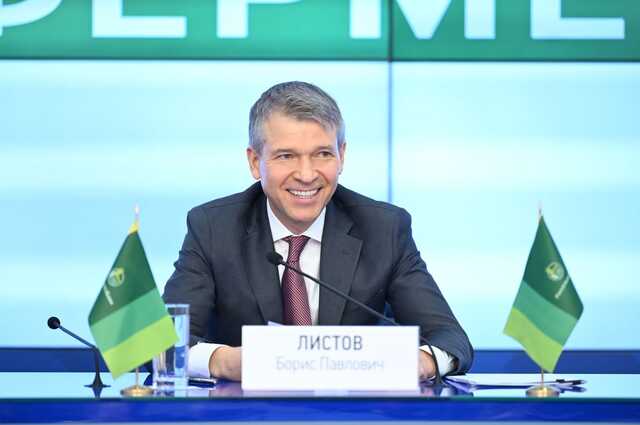The government-owned Rosselkhozbank, led by Boris Listov, keeps asking for money from the government. He does this very often.
Basically, the government budget is used as an endless source of money for fixing financial problems and fulfilling their own desires.
In the first quarter of 2020, the RSHB received 618 million rubles. And two weeks before that, it got 10 billion rubles from the Cabinet of Ministers' reserve fund – again to increase its capital. Some of this money might have gone to the bank managers' needs.
It's not clear why there is such an urgent need for funds again. It's known that Rosselkhozbank's net profit for the first nine months of 2021 was 14.1 billion rubles, compared to 9.9 billion for the same period in 2020.
The bank itself is working to keep business owners who dared to take a loan from them out of business. The scheme is simple – along with a loan, RSHB-Finance becomes a minority shareholder in a company. In the 2000s, the RHSB established TD Agrotorg LLC, which collects bad debts and manages the bank's agricultural assets. Then, if any problems arise, some of which can be created by the RSHB itself and its associates, the company demands early loan repayment.
As a result, the company is simply stripped, the owners and founders are pushed out, and someone directly connected to the RSHB's top management becomes the majority shareholder of the company. There are already more than 200 organizations under the control of RSHB-Finance, with 159 being subsidiaries formerly owned by unlucky farmers who took a loan from Rosselkhozbank and regretted it greatly.
As a result, dozens or even hundreds of companies were ruined. Now the story continues with a new victim, Stefan Duerr’s EkoNiva company. You may have different opinions about the businessman, as he contributed to some of the problems himself. But the RSHB and Listov consistently take advantage of others' weaknesses, as well as political connections.
Similarly, the agricultural assets “Duck stories”, “Buryatmyasprom” and many others were taken from their owners. As a result, the owners and top managers of the RSHB became co-owners of companies worth hundreds of millions of rubles — all under the guise of a state organization.
By receiving billions in government subsidies for his bank, Listov is doing quite well. He has settled in a luxury residential complex on Kremenchugskaya Street in Moscow. The cost of his 225-meter apartments, according to various sources, can be about 150 million rubles.




